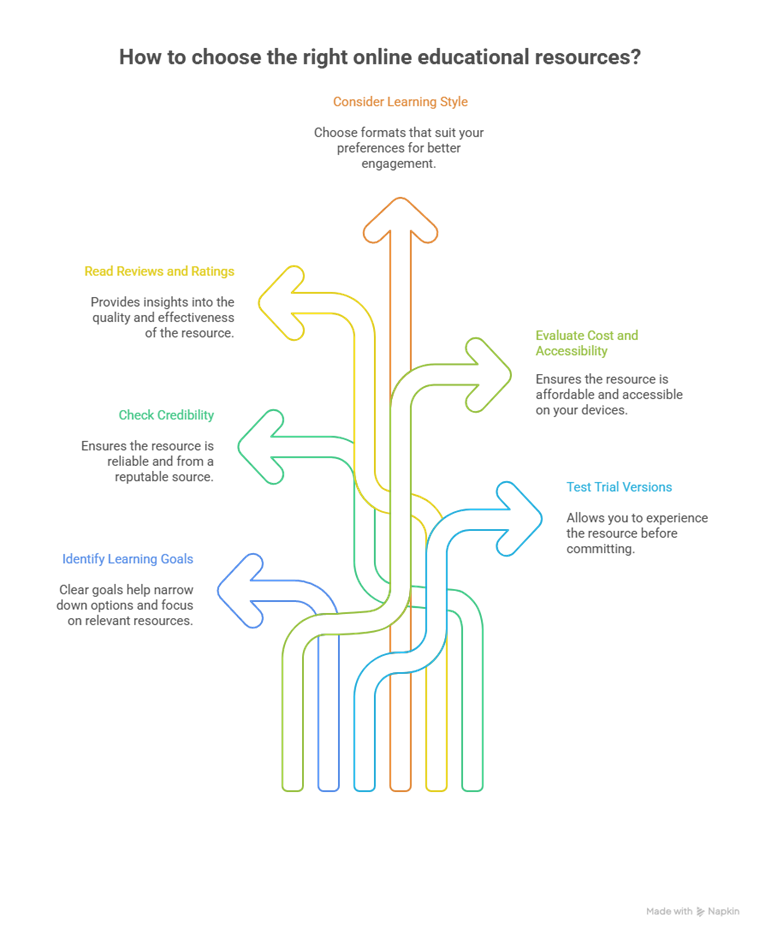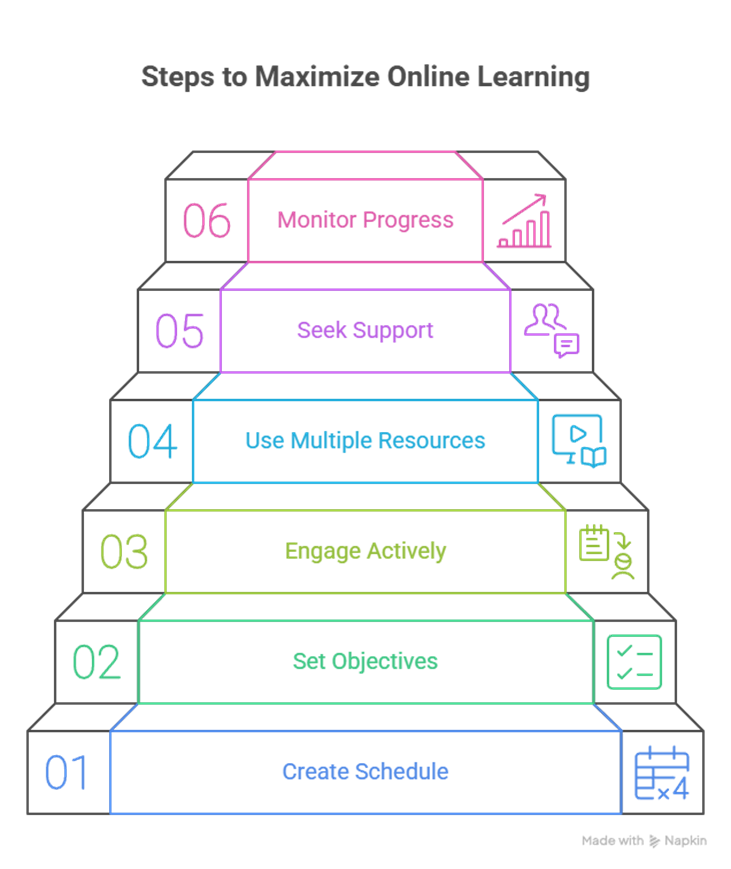Comprehensive Guide to Educational Services
- Aug 8, 2025
- 7 min read
Updated: Aug 9, 2025
In today's fast-paced world, learning has evolved beyond traditional classrooms. The rise of technology has made online educational resources more accessible and diverse than ever before. Whether you are a student, a teacher, or a lifelong learner, understanding how to navigate and utilize these resources can significantly enhance your educational journey.
Conversational Audio Podcast
Exploring the World of Online Educational Resources
Online educational resources encompass a wide range of tools and materials available on the internet to support learning. These include video tutorials, e-books, interactive quizzes, virtual classrooms, and more. The convenience of accessing these resources anytime and anywhere makes them invaluable for modern education.
Some popular types of online educational resources include:
Massive Open Online Courses (MOOCs): Platforms like Coursera, edX, and Udemy offer courses from top universities and experts worldwide.
Educational Videos: Websites such as Khan Academy and YouTube provide free instructional videos on countless subjects.
E-books and Articles: Digital libraries and academic databases offer extensive reading materials.
Interactive Tools: Simulations, games, and quizzes that make learning engaging and hands-on.
Using these resources effectively requires setting clear goals, choosing reputable platforms, and maintaining a consistent study schedule. For example, a student preparing for a math exam might use Khan Academy videos for concept explanations and then practice problems on an interactive quiz site.

Benefits of Using Online Educational Resources
The advantages of online educational resources are numerous and impactful. Here are some key benefits:
Flexibility: Learn at your own pace and schedule, fitting education around other commitments.
Accessibility: Resources are available globally, breaking down geographical barriers.
Variety: Access to diverse subjects and teaching styles to suit different learning preferences.
Cost-Effectiveness: Many resources are free or low-cost compared to traditional education.
Up-to-Date Content: Online platforms can quickly update materials to reflect the latest knowledge and trends.

For instance, a working professional seeking to upgrade skills can take evening courses online without disrupting their job. Similarly, students in remote areas can access quality education that might not be available locally.

What are educational services jobs?
Educational services jobs cover a broad spectrum of roles dedicated to facilitating learning and development. These jobs are not limited to teaching but include various support and administrative positions that contribute to the education ecosystem.
Some common educational services jobs include:
Teachers and Instructors: Deliver lessons in schools, colleges, or online platforms.
Educational Counselors: Guide students in academic and career planning.
Curriculum Developers: Design and update educational content and programs.
Instructional Coordinators: Oversee teaching standards and implement new teaching methods.
Education Technologists: Integrate technology into learning environments.
Tutors: Provide personalized support to students in specific subjects.
School Administrators: Manage operations and policies in educational institutions.
Each role plays a vital part in ensuring that learners receive quality education tailored to their needs. For example, an instructional coordinator might introduce new digital tools to enhance classroom engagement, while a tutor offers one-on-one help to improve a student's understanding.

How to Choose the Right Online Educational Resources
Selecting the best online educational resources can be overwhelming due to the sheer volume available. Here are practical tips to help you make informed choices:

Identify Your Learning Goals: Are you looking to gain a new skill, prepare for exams, or explore a hobby? Clear goals narrow down your options.
Check Credibility: Use resources from reputable institutions, verified instructors, or well-known platforms.
Read Reviews and Ratings: Feedback from other learners can provide insights into the quality and effectiveness of the resource.
Consider Learning Style: Choose formats that suit you, whether videos, reading materials, or interactive exercises.
Evaluate Cost and Accessibility: Some resources are free, while others require payment. Ensure the platform is accessible on your devices.
Test Trial Versions: Many platforms offer free trials or sample lessons to help you decide.
For example, if you want to learn coding, you might start with free tutorials on Codecademy and then move to a paid course on Udemy for more advanced topics.
Tips for Maximizing Learning with Online Educational Resources

To get the most out of online educational resources, consider these actionable recommendations:
Create a Study Schedule: Allocate specific times for learning to build consistency.
Set Clear Objectives: Break down your goals into manageable tasks.
Engage Actively: Take notes, participate in discussions, and complete exercises.
Use Multiple Resources: Combine videos, readings, and practice tests for a well-rounded approach.
Seek Support: Join online study groups or forums to connect with peers.
Monitor Progress: Regularly assess your understanding and adjust your learning plan accordingly.
For instance, a language learner might watch instructional videos, practice speaking with language apps, and join online conversation groups to enhance fluency.
The Future of Learning with Online Educational Resources
The landscape of education is continuously evolving, with technology playing a central role. Emerging trends include:
Artificial Intelligence: Personalized learning experiences tailored to individual needs.
Virtual and Augmented Reality: Immersive environments for hands-on learning.
Gamification: Using game elements to motivate and engage learners.
Microlearning: Short, focused learning sessions for busy lifestyles.
Lifelong Learning Platforms: Continuous education opportunities for all ages.

These innovations promise to make education more accessible, engaging, and effective. Staying informed about new tools and methods will help learners and educators adapt and thrive.

For those interested in exploring more about educational services, this platform offers valuable insights and resources to support your learning journey.
Embracing the Power of Online Learning
Harnessing the potential of online educational resources can transform how knowledge is acquired and shared. By understanding the types of resources available, choosing wisely, and applying effective learning strategies, anyone can unlock new opportunities for personal and professional growth. The future of education is digital, dynamic, and designed to meet the needs of every learner.
DELVE Deeper: an in depth discussion podcast
Glossary of Key Terms
Accelerated Learning: A concept of learning that, when truly effective, involves recognising prior knowledge and active, experiential engagement through "doing," leading to lasting retention rather than rapid forgetting. Often misunderstood as merely fast study.
AI (Artificial Intelligence): The simulation of human intelligence processes by machines, especially computer systems. Discussed in the context of job automation and its impact on the workforce.
Biometric Technologies: Technologies that measure and analyse unique biological and behavioural characteristics for identification and authentication. Mentioned in the context of increasing scientific specialisation.
Blended Learning: An educational approach that combines online educational materials and opportunities for interaction with traditional classroom methods.
Calisthenics: A form of strength training consisting of a variety of exercises that often use only bodyweight, emphasising skill development and progressive understanding.
Curriculum Developers: Educational services professionals responsible for designing and updating educational content and programs.
Educational Counselors: Educational services professionals who guide students in academic and career planning.
Education Technologists: Educational services professionals who integrate technology into learning environments.
E-books and Articles: Digital versions of books and written content, widely available through online platforms and databases.
Flipped Classroom: An instructional strategy where traditional lecture content is delivered outside of class (e.g., via recorded videos), and class time is dedicated to interactive activities, problem-solving, and discussion.
Functional Education: An approach to learning that emphasises practical application, relevance to real-world scenarios, and the integration of mind and body, contrasting with abstract studies.
Functional Exercise: A type of exercise that trains the body for the activities performed in daily life, often integrating physical movement with mental acuity and problem-solving.
Gamification: The application of game-design elements and game principles in non-game contexts, used to motivate and engage learners.
HI (Human Intelligence): The cognitive capabilities of humans, emphasised as ultimately more important than Artificial Intelligence despite technological advancements.
Instructional Coordinators: Educational services professionals who oversee teaching standards and implement new teaching methods.
Interactive Tools: Online educational resources such as simulations, games, and quizzes that provide hands-on and engaging learning experiences.
Interdisciplinary Cooperation: Collaboration and communication between different fields of knowledge, professions, or industries, deemed essential to solve complex modern problems due to increasing specialisation.
Lifelong Learning: The continuous acquisition of knowledge and skills throughout a person's life, essential for adapting to a rapidly changing world.
Life Skills: Competencies, including psychosocial skills and abilities, that help individuals function well in day-to-day life, enabling decision-making, critical thinking, effective communication, and coping with stress.
Learning Management System (LMS): A software application for the administration, documentation, tracking, reporting, automation, and delivery of educational courses, training programs, or learning and development programs.
Massive Open Online Courses (MOOCs): Online courses aimed at unlimited participation and open access via the web, offered by platforms like Coursera, edX, and Udemy.
Microlearning: Short, focused learning sessions designed to fit into busy lifestyles, delivering content in small, digestible units.
Online Educational Resources: A broad range of tools and materials available on the internet to support learning, including videos, e-books, quizzes, and virtual classrooms.
Parkour: A physical discipline focused on efficient movement through an environment, often involving overcoming obstacles using running, jumping, and climbing. Highlighted as a skill learnable online.
Prior Knowledge Recognition (PKR): The process of acknowledging and linking a learner's existing knowledge and experiences to new information, facilitating deeper understanding and retention.
Prompt Engineering: The process of designing and refining inputs (prompts) to achieve desired outputs from AI models, highlighted as a new skill for IT professionals.
School Administrators: Educational services professionals who manage operations and policies in educational institutions.
Self-Defence: Skills and techniques learned to protect oneself from harm, highlighted as an invaluable skill teachable through online courses.
Social Learning: Learning that occurs through interactions with others, including peers, teachers, and industry experts, fostering new ideas and knowledge sharing.
Teachers and Instructors: Educational services professionals who deliver lessons in various settings, including online platforms.
Tutors: Educational services professionals who provide personalised support to students in specific subjects.
Virtual and Augmented Reality: Immersive technologies used to create interactive learning environments.
Virtual Classrooms: Online learning environments where students and teachers interact in real-time, often through video conferencing and collaborative tools.
Whole Mind Learning: A holistic approach to learning that utilises all five physical senses, emotions, and cognitive abilities, promoting deeper engagement and memory retention.










Comments